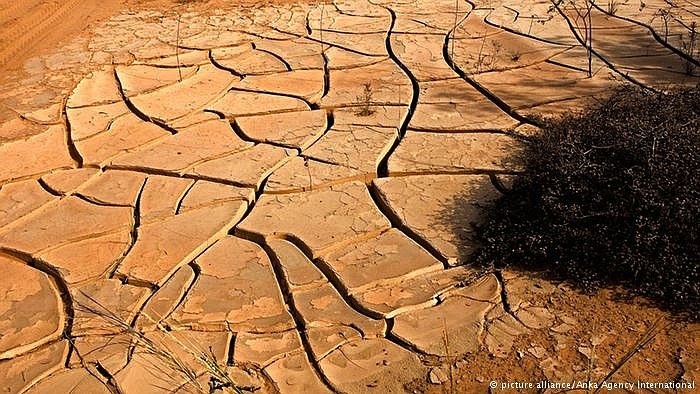Also Read
- Part I - Part II
The rapper, Babacar Niang, known simply as Matador, the 40-year-old voice of the voiceless and one of the pioneers of African rap, emerged from the oft-flooded Thiaroye slum of Dakar to become the godfather of the underground hip-hop scene here. I attended his concert at a cultural center a few nights ago. I confess it was my first hip-hop concert, and it took a little getting used to.
The hypnotic beat of Matador's rap appeals to young Senegalese not to join the migration to Europe - driven by a toxic brew of government failures, overpopulation and extreme floods and droughts - but to stay home and build their country.
The weatherman is Ousmane Ndiaye, head of the climate unit for the National Civil Aviation and Meteorology Agency. He trained at Columbia in climate science. His stage is a drab office at Dakar Airport. His voice is a monotone. His audience of one was me.
I met them both while filming a documentary, "Years of Living Dangerously," on climate change that is to air in the fall on National Geographic Television.
Matador showed me the Thiaroye slum, where he grew up. Starting with the droughts of the 1970s, many rural migrants moved to Dakar for work, and many settled in the only open space: marshland dried up by the drought. But around 2000 the rains, often torrential, returned, and Thiaroye became uninhabitable - but fully inhabited. Today it's one of those grim intersections where climate, migration, population and the lack of urban planning all meet.
The home where Matador got his start is literally engulfed by giant weeds. Putrid sewage and standing water abound. But people are living anywhere there are four walls and a dry enough floor. One of his biggest hits - rapped in Wolof, the local language - is in homage to this place. It's called "Catastrophe," and here's some of it:
"Clouds piling up from the north announce the rain to come.
"People's faces read worry first, then fear/With the first rains come the first wave of departures/Those who prayed for rain sure got their prayers answered/Long gone are the days where we would beg the spirits for water/Today the rain is falling and it won't stop/The stagnant waters keep piling up/And soon the floods will sweep away our homes/The torrent chases us out to reclaim its bed/You can try to keep nature out, it will always return/After the drought, now we face the rain.
"Wading in the mud, day in, day out/Using the flood as a pretext, some empty their septic tanks at night/As the tanks overflow, it's neighbor against neighbor/Puddles become streams and rivers in which crocodiles and snakes swim/At night, the hum of mosquitoes and frogs turns into a racket/A drowned newborn is pulled from the muddy flow/Then malaria and cholera finish off the survivors/If there was aid money on its way, we never saw it."
Out at the airport, Ndiaye, the climate expert, click, click, clicks through his climate graphs for me on his Dell desktop, providing his own backup beat to Matador's rap.
"Last week the weather was 5 degrees Celsius above the normal average temperature, which is a very extreme temperature for this time of year," he explains. Click to Graph 2. "From 1950 to 2015 average temperature in Senegal has gone up 2 degrees Celsius," says Ndiaye, adding that the whole Paris U.N. climate conference was about how to avoid a 2-degree rise in the global average temperature since the Industrial Revolution and Senegal is already there.
Click. The U.N. Intergovernmental Panel on Climate Change "in 2010 gave four scenarios for Senegal, and the worst was unbelievable - and now," he says, "the observation says we're following that path even faster than we imagined, and it leads to 4 degrees Celsius rise in average temperature by 2100. People are still doubting climate change, and we are living it."
Click.
